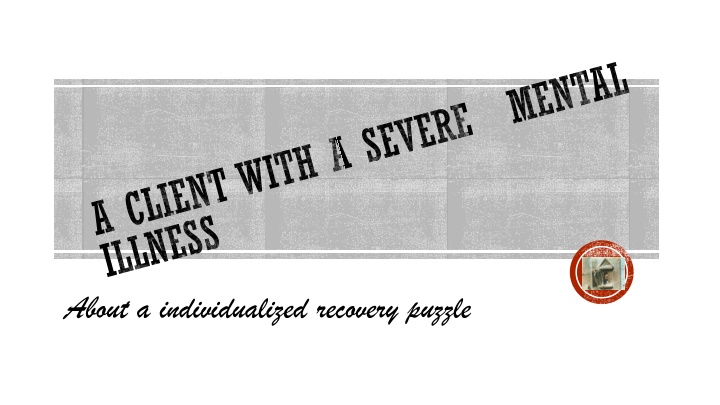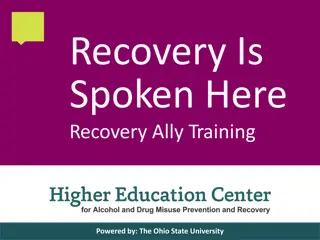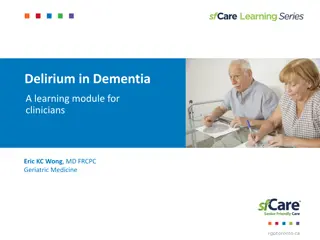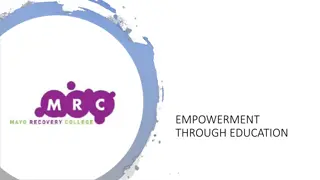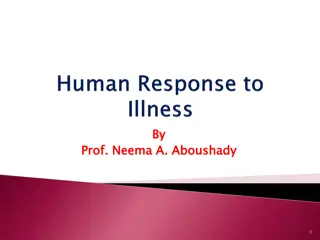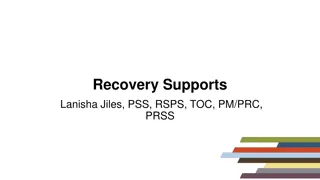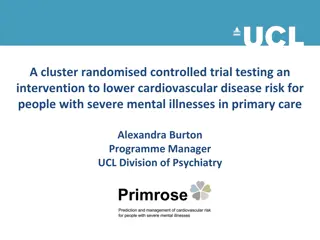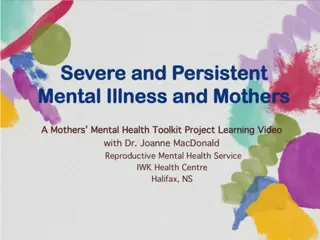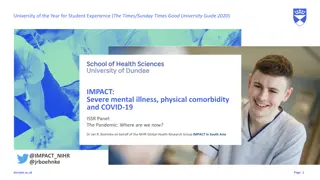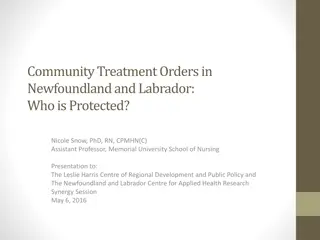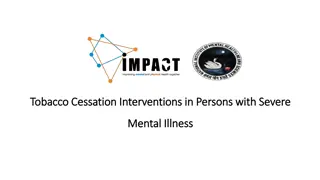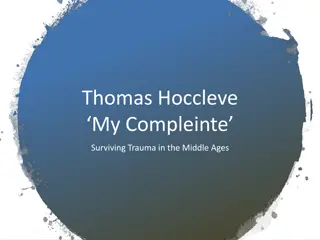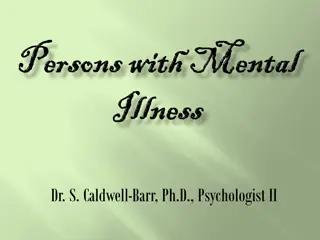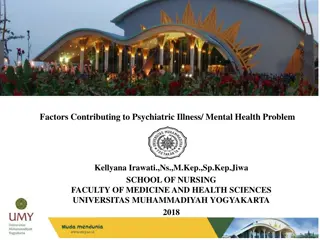Innovative Approaches for Individualized Recovery in Severe Mental Illness
Embracing the recovery model for individuals with severe mental illness entails moving away from traditional approaches and focusing on values, shared decision-making, and community support. The hierarchy of needs profiles different levels of specialized services, while measurements include wellbeing, symptom severity, and social-economic factors. Key questions revolve around measuring functional outcomes, aligning expectations with service delivery, and understanding the impact of community settings on educational interventions from the client's perspective.
Download Presentation

Please find below an Image/Link to download the presentation.
The content on the website is provided AS IS for your information and personal use only. It may not be sold, licensed, or shared on other websites without obtaining consent from the author.If you encounter any issues during the download, it is possible that the publisher has removed the file from their server.
You are allowed to download the files provided on this website for personal or commercial use, subject to the condition that they are used lawfully. All files are the property of their respective owners.
The content on the website is provided AS IS for your information and personal use only. It may not be sold, licensed, or shared on other websites without obtaining consent from the author.
E N D
Presentation Transcript
A CLIENT WITH A SEVERE MENTAL ILLNESS About a individualized recovery puzzle
CLIENT WITH A SEVERE MENTAL CONDITION Traditional approaches New, innovative approaches address to: Professional expertise and control The lack of power and control Diagnosis of deficits Stigma Symptom reduction Poverty Unemployment Life skills training Poor housing
THE RECOVERY MODEL Values lived experiences Encourages a shared decision making in developing, implementing, and evaluating the treatment strategies
THREE DOMAINS OF RECOVERY Consumer Status Clinicians Roles Community Supports Roles
HIERARHY OF NEEDS PROFILE Profile #1 Inpatients Specialised High Intensity Rehabilitation and Integration Services Specialised multidisciplinary-multi-program outreach and consultation Profile #2 Specialised High Intensity Rehabilitation and Integration Services (CHITT; ACTT) Partners: Community Mental Health; Housing; Primary Care Practitioners) Profile #3 Specialised Outreach, Consultation and Relapse Prevention (as secondary providers/shared care) Partners: Community Mental Health; Housing; Primary Care Practitioners, Retirement Homes) Profile #4 Specialized Consultation (staff from across teams including inpatient services) Partners: Community Mental Health; Housing; Primary Care Practitioners, Retirement Homes)
MEASUREMENTS ? Wellbeing, quality of life and life satisfaction Clinical symptom severity - cognition/emotion, behaviour Physical health Interpersonal - functional Social economic, public safety, burden of caregivers Services
QUESTIONS 1. How to measure the functional outcome? 2. Is there a difference between expectations and service delivery? 3. Is the functional outcome influenced by different community settings when the clients are involved with the same educational oriented intervention? 4. What is our clients perspective?
